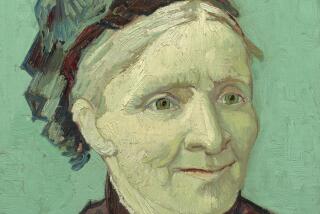‘Star Wars’ and other escapes in the absence of a mother
Is there anything Jonathan Lethem can’t do well? Surely, aspiring literary multi-taskers look upon him with seething envy, much the way postwar novelists regarded Norman Mailer like some kind of freakish prose machine. In the last two years alone, Lethem has published his epic roman a clef “The Fortress of Solitude” as well as the acclaimed collection of short stories “Men and Cartoons.” In the small gaps between book writing, the Brooklyn denizen has churned out a series of essays, book reviews and interviews that calibrate the personal and the cultural with knowing humor and well-earned pathos.
A glance at the table of contents for this collection of essays reveals no discernible pattern. We appear to have a Whitman’s Sampler of pieces on pop culture, life and literature: ruminations on Marvel comic books and the films of John Cassavetes, Lethem’s boho parents, Star Wars, the allure of a Brooklyn subway station, cherished rock albums of his youth.
But to dismiss “The Disappointment Artist” as mere career filler is to severely underestimate the cumulative power of these essays. Because there is a superstructure to be found here, one that winds though his body of work like clinging kudzu -- the search for meaning in the absence of his mother. So it’s best to think of this book as an autobiography in essays, or the biography of an artistic sensibility as seen through the dense scrim of an unfathomable tragedy.
Judith Lethem was 36 when she died of a brain tumor; Lethem was 14 at the time, and deeply immersed in the development of his hierarchy of taste -- weeding out the meretricious art from the sublime stuff, homing on his favorite writers and rock artists, figuring out exactly what was truly meaningful to him. In the wake of his mother’s death, his burrowing into art became a rescue mission, an attempt to subsume his grief with mother-surrogates like Bob Dylan, David Byrne and Philip K. Dick. Their work became his teachings, new ways of seeing the world and his place in it. “Attempting to burrow and disappear into the admiration of certain works of art,” Lethem writes in his essay “The Beards,” “I tried to make such deep and pure identification that my integrity as a human self would become optional, a vestige of my relationship to the art.”
That absolute commitment to art as a means of escape from the inconsolable self is what gives the essays in “The Disappointment Artist” their dramatic heft. When Lethem writes in “13, 1977, 21” about the summer he watched “Star Wars” 21 times, he’s probing that wonderfully irrational passion that a teenage boy attaches to a film that speaks only to him, and the solace of solitary moviegoing that “seems to me as near as I come in my life to any reverent or worshipful ... practice.” When Lethem invites his mother to participate in the ritual, the essay becomes a touching mediation on a son reaching out to his terminally ill mother across a cultural divide: “I was saying, in effect: Come and see my future, post-mom self. Enact with me your parting from it. Here’s the world of cinema and stories and obsessive identification I’m using to survive your going -- now go.”
Lethem was not a reflexively rebellious kid. Instead, as he writes in “Identifying With Your Parents, or The Return of the King,” his search for artistic authenticity led him into the no-man’s-land of outre artifacts like Chuck Berry, Anthony Newley and Ernie Kovacs. His love of Marvel comic books, specifically the darkly brooding titles produced by Stan Lee and Jack Kirby, became an entry point into the demiworld of his friend Karl, “full of intimations of fireworks and drugs and petty thievery that frightened and thrilled me.” So, two new role models for Lethem, then: the “darkly paternal” Kirby and Lee, who writes in the voice of a “teenage nonconformist
It’s important to note that “The Disappointment Artist” isn’t some mushy lurch toward self-actualization, a self-help book for pop culture geeks. Lethem is one of our most perceptive cultural critics, conversant in both the high and low realms, his insights buffeted by his descriptive imagination. In an essay about John Ford’s “The Searchers,” Lethem wears his black-rimmed glasses during a college screening he has organized in order to “decorate my outer self with a confession of inner reality.... I readied myself like a man who suspects his first date might become an elopement.” In his eloquent defense of the films of Cassavetes, Lethem rightly states that the work of outsider “freak-geniuses” like Cassavetes and Dylan needs “a world of more typical art the way a shadow needs a wall.” By conflating rich critical insight with moving emotional subtext, Jonathan Lethem has produced a disarming treatise on the essential connectivity between life and art.
Marc Weingarten is the author of “Based on a True Story: Wolfe, Mailer, Didion and the New Journalism Revolution,” to be published this fall.
More to Read
Sign up for our Book Club newsletter
Get the latest news, events and more from the Los Angeles Times Book Club, and help us get L.A. reading and talking.
You may occasionally receive promotional content from the Los Angeles Times.








